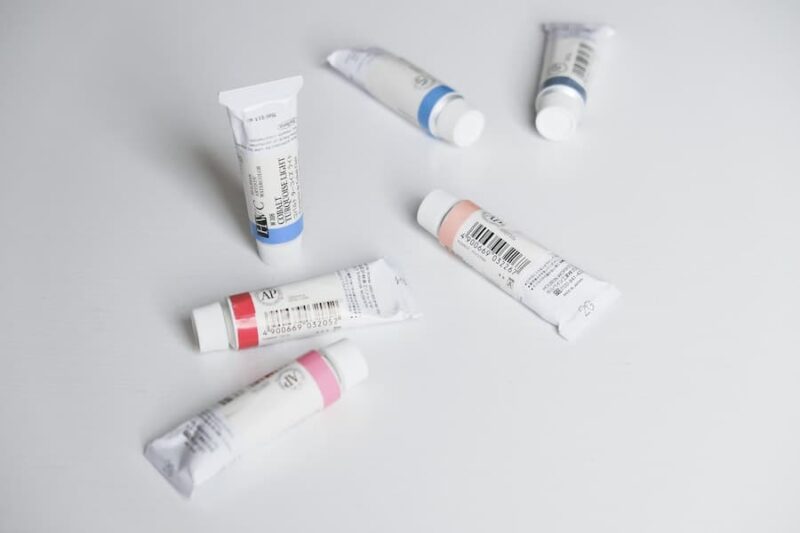When our beloved feline friends suffer from wounds or minor injuries, it’s natural for us to want to help them heal quickly. As pet owners, we often turn to familiar products like Neosporin, which are commonly used for wound care in humans. However, when it comes to cats, the question arises: can you put Neosporin on a cat? In this article, we delve into this query, exploring the safety and effectiveness of using Neosporin on our feline companions.
Can You Put Neosporin On A Cat?
No, it is generally not recommended to use Neosporin or other human medications on cats without veterinary guidance. Cats have unique sensitivities and can have adverse reactions to certain ingredients in Neosporin. It is crucial to consult a veterinarian for proper wound care and to use cat-specific products that are safe and effective for their delicate skin.
Understanding Neosporin
Neosporin is a widely recognized over-the-counter medication primarily used for wound care in humans. It is an antibiotic ointment that contains three active ingredients: neomycin, polymyxin B, and bacitracin. Neomycin and polymyxin B are broad-spectrum antibiotics that help prevent bacterial growth, while bacitracin works to inhibit bacterial cell wall synthesis. This combination of ingredients makes Neosporin effective in preventing infection and promoting wound healing in humans.
However, it’s important to note that Neosporin is specifically formulated for human use and has not been specifically tested or approved for use on animals, including cats. Cats have unique physiological differences, especially when it comes to their skin and how they metabolize medications. Therefore, what may be safe and effective for humans may not necessarily be suitable for cats.
Additionally, some cats may have sensitivities or allergies to the ingredients found in Neosporin. Neomycin, one of the active ingredients in Neosporin, can cause adverse reactions in cats, including skin irritation, itching, and even allergic reactions. Therefore, it is crucial to exercise caution when considering the use of Neosporin on cats.
Given these factors, it is recommended to consult with a veterinarian for proper wound care guidance specific to cats. They can provide appropriate recommendations and prescribe medications that are safe and effective for feline use. It’s essential to prioritize the health and well-being of our furry companions by seeking professional veterinary advice for any medical concerns.
Cat Physiology And Skin Sensitivity
Cats have unique physiological characteristics, including their skin, which differ from those of humans. Understanding these differences is crucial when considering the application of products like Neosporin on cats. Here are some key points regarding cat physiology and skin sensitivity:
- Skin Structure: Cat skin has specific features that distinguish it from human skin. It is relatively thinner and more delicate, making it more susceptible to damage and irritation. The epidermis, the outermost layer of the skin, is thinner in cats, which means it provides less protection against external irritants.
- Licking Behavior: Cats are meticulous groomers and tend to groom themselves by licking. This behavior can lead to ingesting substances applied to the skin, making it important to use only cat-safe products to avoid potential toxicity.
- Different Reactions: Cats may react differently to substances compared to humans. Certain ingredients, even those considered safe for humans, can cause adverse reactions in cats. Allergic reactions, skin irritation, and even systemic toxicity can occur when cats are exposed to substances that are not specifically formulated for feline use.
- Liver Metabolism: Cats have a unique liver metabolism compared to humans. They have a limited ability to metabolize certain medications, which can result in increased sensitivity and potential toxicity. It is essential to consider this when contemplating the use of human medications, such as Neosporin, on cats.
Safe Alternatives To Neosporin For Cats
While Neosporin is not recommended for use on cats due to its unique sensitivities and potential adverse reactions, there are alternative products specifically formulated for feline wound care. Here are some safe alternatives to Neosporin for cats:
- Veterinarian-Prescribed Antibiotic Ointments: Your veterinarian can prescribe antibiotic ointments that are safe and effective for treating wounds in cats. These ointments are specifically formulated for feline use, taking into account their unique physiology and potential sensitivities.
- Chlorhexidine Solution: Chlorhexidine is an antiseptic solution commonly used for wound care in cats. It has broad-spectrum activity against bacteria and can be diluted according to your veterinarian’s instructions. It is important to follow the recommended dilution and application guidelines for safe use.
- Silver Sulfadiazine Cream: Silver sulfadiazine is a topical cream that has both antimicrobial and wound-healing properties. It is commonly used in veterinary medicine for treating various skin conditions and burns in cats. However, it should only be used under veterinary guidance.
- Natural Remedies: Some natural remedies, such as aloe vera gel (without additives), can provide soothing and mild antibacterial properties for minor cat wounds. However, it is crucial to consult with a veterinarian before using any natural remedies to ensure their safety and efficacy for your cat.
Consulting A Veterinarian
When it comes to the health and well-being of your cat, consulting a veterinarian is crucial, especially when dealing with wounds or injuries. Here are important points to consider when seeking veterinary guidance:
- Professional Assessment: Veterinarians have the knowledge, expertise, and experience to properly assess cat wounds. They can determine the severity of the injury, identify potential complications, and provide an accurate diagnosis. Their professional assessment ensures appropriate treatment and care.
- Tailored Treatment Plans: Every cat is unique, and wounds can vary in terms of size, location, and severity. A veterinarian can create a customized treatment plan tailored to your cat’s specific needs. This may include specific wound care instructions, appropriate medications, and recommendations for any necessary follow-up care.
- Safe and Effective Medications: Veterinarians can prescribe medications that are safe and effective for cats. They consider the cat’s physiology, potential sensitivities, and any underlying health conditions. They have access to a range of veterinary-specific products that are formulated to meet feline needs.
- Preventing Infections: Wound infections can be a significant concern for cats. A veterinarian can assess the risk of infection and prescribe appropriate antibiotics or other medications to prevent complications. They will provide guidance on proper wound cleaning and care to minimize the risk of infection.
- Monitoring and Follow-up: Veterinarians play a crucial role in monitoring the progress of the wound healing process. They can provide guidance on how to monitor the wound at home and advise on signs of potential complications. They may schedule follow-up appointments to ensure the wound is healing properly and adjust the treatment plan if needed.
Final Words
In conclusion, when it comes to caring for your cat’s wounds, it’s important to prioritize their health and well-being. While Neosporin is not recommended for use on cats, there are safe alternatives available. However, the best course of action is always to consult a veterinarian. They can assess the wound, provide appropriate treatment options, and guide you on proper wound care. By seeking professional veterinary advice, you can ensure that your furry friend receives the optimal care needed for a swift and successful recovery.
FAQ’s
Can I Use Neosporin On My Cat If They Have A Minor Scratch Or Wound?
It is generally not recommended to use Neosporin or other human medications on cats without veterinary guidance. Cats have unique sensitivities and can have adverse reactions to certain ingredients in Neosporin. It is best to consult a veterinarian for proper wound care and to use cat-specific products that are safe and effective for their delicate skin.
Are There Any Safe Home Remedies I Can Use On My Cat’s Wounds?
While there are some natural remedies, such as aloe vera gel (without additives), that may provide soothing properties, it is important to consult with a veterinarian before using any home remedies on your cat’s wounds. They can guide you on safe options and ensure that the remedies are suitable for your cat’s specific situation.
How Can I Tell If My Cat’s Wound Is Infected?
Signs of a potentially infected wound in cats include redness, swelling, discharge (pus), increased pain or sensitivity around the wound, foul odor, and a lack of improvement in the wound’s appearance over time. If you suspect an infection, it is essential to consult a veterinarian for proper evaluation and treatment.
When Should I Seek Veterinary Attention For My Cat’s Wound?
It is advisable to seek veterinary attention for your cat’s wound if it is deep, large, bleeding profusely, or if there is a foreign object embedded in the wound. Additionally, if the wound shows signs of infection or if your cat is exhibiting signs of pain, discomfort, or behavioral changes, it is important to consult a veterinarian promptly.
Can I Use Over-The-Counter First Aid Sprays Or Creams On My Cat’s Wounds?
Over-the-counter first aid sprays or creams formulated for humans are generally not recommended for use on cats. These products may contain ingredients that can be harmful or irritating to cats. It is best to consult with a veterinarian who can recommend safe and effective wound care products specifically designed for feline use.










